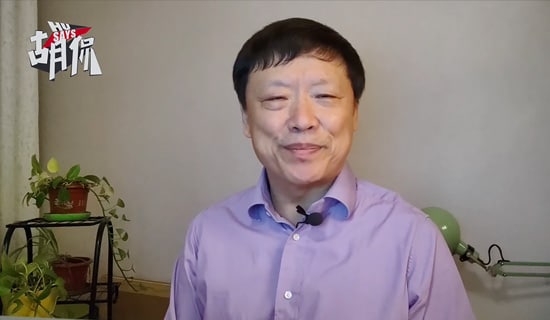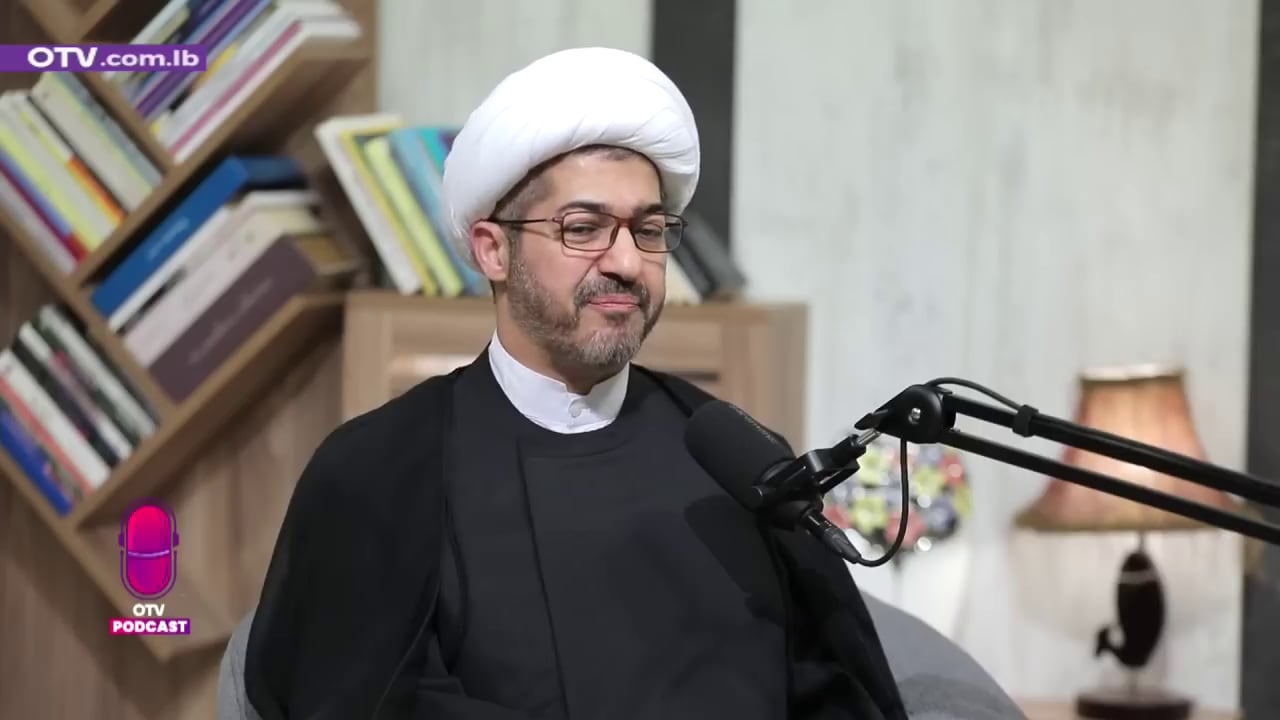
Elie Mahfoud, the leader of the Lebanese Movement for Democratic Change, said in an August 25, 2019 interview on Al-Arabiya TV (Saudi Arabia) that everybody in Lebanon wants to know who rules over Lebanon and who holds the power to make decisions. Mahfoud said that the current anarchic state of affairs in which Hizbullah Secretary-General Hassan Nasrallah has the power to declare war cannot continue, and he said that Lebanon's military is perfectly capable of defending Lebanon and its borders. Mahfoud warned that if the Lebanese government does not take initiative, then the situation in Lebanon will decline to an even worse situation than during the 2006 Israel-Lebanon War, and he emphasized that Lebanon suffered much heavier losses and destruction during that war than Israel did, despite Hizbullah's celebration of the war as a victory. In addition, Mahfoud said that Iran's militant activity in the Middle East is a "sad joke" because there hasn't been a single military operation against Israel, and he said that the Lebanese are "exploiting and riding the horse of the Palestinian Cause" while actually harming the Palestinians and giving Israel more excuses to sow ruin and destruction in the entire region. Mahfoud's remarks were made in light of Hassan Nasrallah's recent speech in which he said Hizbullah will engage Israeli drones flying in Lebanese airspace (see MEMRI TV Clip No. 7439).
Following are excerpts:
Elie Mahfoud: Today, I want to discuss the role of the Lebanese authorities – the role of the state, the role of the government. I would like to ask the question that the entire Lebanese public is asking today, after having listened to Hassan Nasrallah: Who rules over Lebanon? This is the basic question that I want to present. Can you believe that I and every Lebanese citizen, along with the heads of state, ministers, MPs, and the various leaders in Lebanon, are all waiting to hear whether Hassan Nasrallah declares war or not? So we need to return to the starting point and ask: Who holds the power in Lebanon? Who makes the decisions in Lebanon? Who in Lebanon has the right to declare a state of war or peace? This is the crux of the matter. This is where the problem lies. The identity of the drone isn't the problem.
[…]
Things cannot go on this way. Hizbullah cannot continue to hold all the governmental power in Lebanon and decide for us what we should do. As one of four million Lebanese citizens… [We constantly] need to check our own pulse out of fear that some war will [suddenly] be declared. Who will declare this war? What gives authority to this man who said what he said to the Lebanese people? I want to say that I do not place the responsibility on Hizbullah or on any other faction. Hizbullah has its own agenda and goals. It obeys clear Iranian orders, and it is one of the militias that Iran commands in the region. Today, Hassan Nasrallah spoke about the [Iraqi] PMU and about things that happen beyond Lebanon's borders, and this is not the first time. I have nothing to do with what happens in Iraq. As a Lebanese person, I care about [our own] 10,452 square kilometers. I have a Lebanese army that can defend Lebanon, defend the borders, provide security, and also protect Lebanon from any Israeli aggression…
Interviewer: If it gets the opportunity…
Elie Mahfoud: If the Lebanese government as a whole does not take this initiative today – immediately and as quickly as possible – things will get out of control and we will decline to a situation worse than during the years of the Israeli aggression of the past. Hassan Nasrallah will no longer be able to say: "If only I had known [the cost of war]." Even in the July 2006 war, which [Hizbullah] celebrates as a victory… You just showed figures about the damages that Lebanon suffered: $1.4 billion. My question is: What kind of losses did the Israeli enemy suffer in that war? [You say] that they did not win the war, but what did they lose? This is the question I am asking. Our children emigrate, our homes are ruined, our hospitals fall apart, the environment is being destroyed… Everything in Lebanon is falling into ruin. For what? For whose sake? Are we going to war for the sake of Bashar Al-Assad, or at the behest of the Jurisprudent Ruler in Iran? Us Lebanese need to defend this land with our own capabilities, in accordance with Lebanese law and by means of our Lebanese army. Otherwise, they should tell us to stop paying the taxes that pay for the salaries in all these government institutions, and pass the authority to Hizbullah and to Hassan Nasrallah, who will rule in the name of Allah. We should at least know what to do. But things cannot remain out of control.
[…]
This matter has turned into a joke, but a sad one. There are endless examples of this. The Islamic Republic of Iran established what is known as the Quds Force. Since the establishment of the Quds Force – or whatever it is, brigade, army, or militia – I haven't heard of a single military operation that they have carried out against the Israeli enemy. So, what do we have to say? How are we serving the Palestinian Cause in this sense? We are exploiting this issue and riding the horse of the Palestinian Cause, but we are isolating the Palestinians more and more, and we are going in the direction of leaving the area as a battlefield and of giving many excuses and pretexts for the Israeli enemy to sow ruin and destruction not only in Lebanon, but in the entire region.













